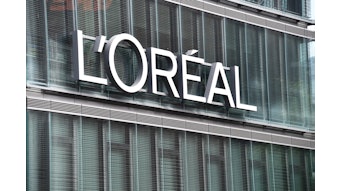The French luxury brand Chanel is offering Winted, a software program to assess the environmental impact of a product’s packaging, to any beauty industry company. The software is available in French and English; the only cost for interested parties is software training (minimum half day)—available through the Winted consultants that works
with Chanel. This initiative dates backs to 2007 when Chanel decided to work on eco-conception, starting by calculating its carbon footprint. Winted has now been used by Chanel internally since June 2009—utilized by the company’s creation, marketing and packaging development departments.
It also answers some of the questions raised by the French project “Affichage environmental” (environment display) that is part of the “Grenelle de l’environnement” (the French environmental policy launched in 2007).
Chanel presented its tool to industry association FEBEA (Fedération des Industries de la Beauté, www.febea.fr) and to ADEME (Agence de l’environnement et de la maîtrise de l’énergie, French Environment and Energy Management Agency), where it received a warm response. Michel Dupuis, senior vice president, purchasing and packaging development, Chanel, told GCI that ADEME saw it as a first.
Weleda Celebrates 90th Anniversary
Swiss natural brand Weleda is turning 90 years old this year. “It’s an old brand with a great future” said Patrick Sirdey, CEO, at a press conference in Paris. Founded by doctors and pharmacists and influenced by Rudolf Steiner’s philosophy (that individuals’ bodies, minds and spirits are intrinsically linked to the world as parts of one holistic system), Weleda began by selling natural medicines, and launched its first cosmetic products in 1922.
With 1,900 employees, three facilities, and a presence in 54 countries, the brand is now well-known globally; and awareness for the brand has exploded in the past 10 years, according to Sirdey. This is partly due both to the green trend and quality sources for ingredients—Weleda, in fact, grows 260 plants for ingredient use in its own gardens. Further, the company has engaged in a sustainable development program, which includes: increasing the organic portion of its formulations (currently at 68%); work actively on fair trade with all suppliers; protect biodiversity; reduce the carbon footprint by 5% per year in its facilities; and reduce water consumption.
In 2010, cosmetics accounted for 72% of Weleda’s sales of €310 million, up 11.6% over 2009 (Weleda also sells health care products). Its sales in the U.S. showed the largest gains (up 25% over 2009), and sales in France grew by 10% to reach €65 million (with cosmetics accounting for €38.3 million) Sirdey told GCI.
2-in-1 Congress in the South of France
Organizers APPAM (Association pour la Promotion des Plantes à Parfum, Aromatiques et Médicinales) and PASS (Parfums Arômes Senteurs Saveurs—Flavour and Fragrance competitive cluster) have agreed to hold a joint congress for the first time. The event will take place Sept. 6–8, 2011, in Digne-Les-Bains (South of France), home to APPAM. It will mark the 30th edition of The Journées Internationales des Huiles Essentielles et Extraits (International Days of Essential Oils & Extracts), and the third international congress “Medicinal and Aromatic Plants (MAP).”
Held in Morocco in 2009 and in Tunisia 2010, MAP focuses on the Mediterranean region. This year, an International Federation of Medicinal and Aromatic Plants is being established to support the development of this segment internationally. The program includes conferences on raw materials, technologies, regulations, etc., as well as workshops and B2B meetings. Organizer Patrick Pellerin told GCI he expects more than 200 participants.
Claire Thévenin is a freelance journalist based in Paris. She has covered the beauty industry since 2005, specializing in European Union regulations.










